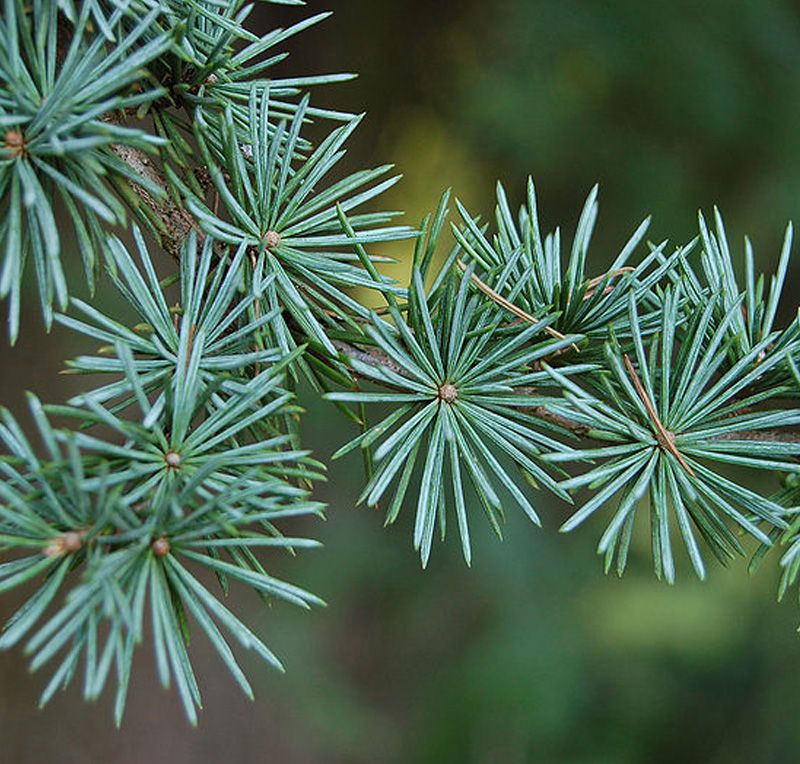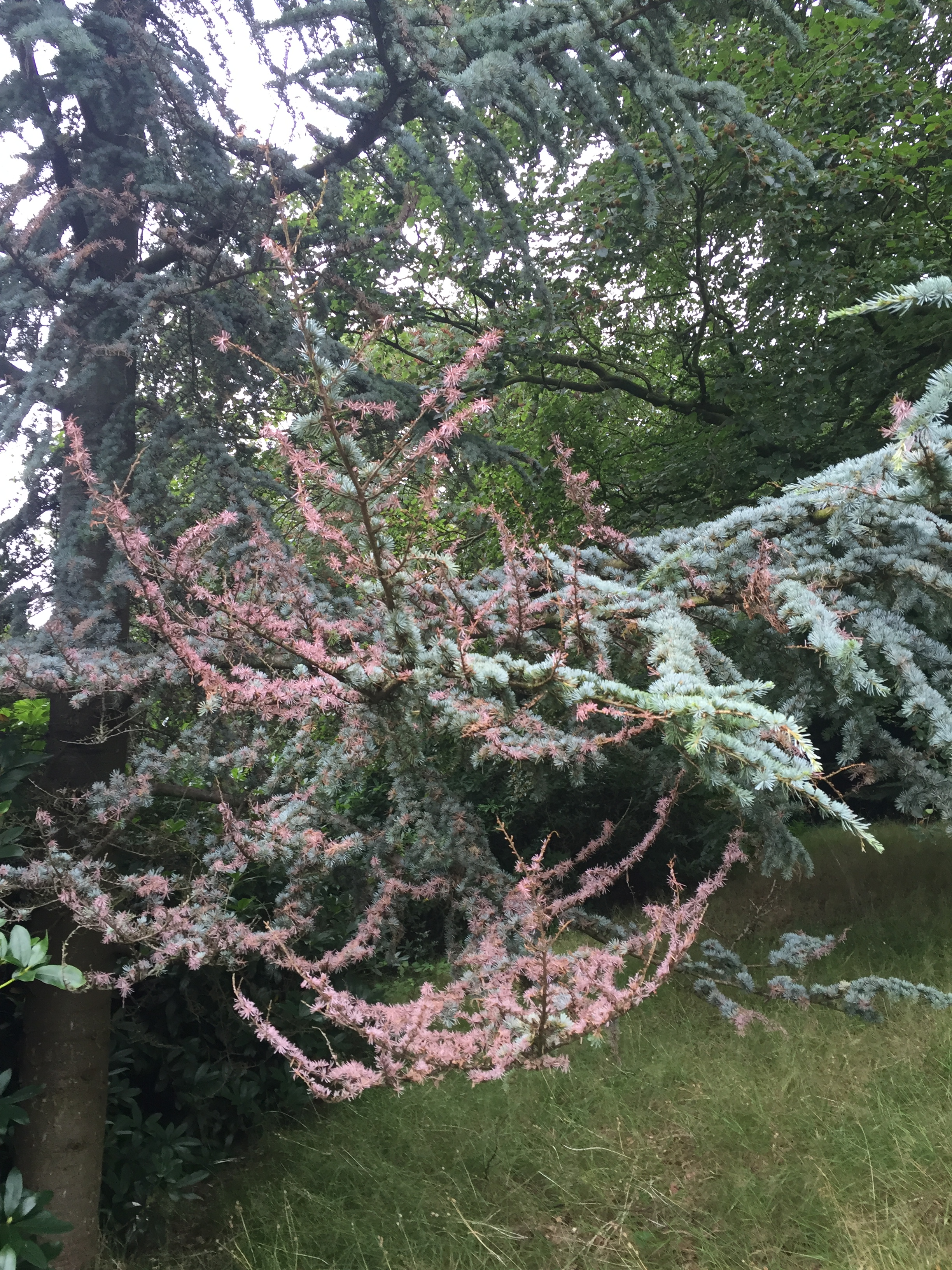Latest tree disease affects Blue Atlas Cedars

Do you have a Blue Atlas Cedar in your garden and is it looking healthy and blue like above, or is it affected by the latest tree disease?
It’s an occupational hazard, but every time we drive somewhere we stare at the trees we go past. Lately, Blue Atlas Cedars (or Cedrus atlantica Glauca Group to give them their correct name) have been catching our eye.
They’re reasonably easy to spot and identify because (normally) they are a really handsome looking tree – a proper conical shaped evergreen with the most beautiful blue needles and unlike a lot of conifers, they are really soft to the touch.
However, every one we’ve looked at recently has looked like this:

Those usually beautiful blue needles are turning pink, then brown and finally falling off all together. These are the classic signs of a fungal disease called Sirococcus Blight. It’s been reported in the UK from various locations since 2013 but now it seems to be spreading fast. And according to Forest Research, it may also affect other Cedars and some Hemlocks.
If you have a Blue Cedar and it looks like the one shown on the right – ends of branches curling over to look like a shepherd’s crook, needles turning pink all over the tree, or in the worst case, needles falling off and weeping wounds (called cankers) on the branches, I’m afraid the news isn’t good!
Forest Research confirms that there are no effective control measures. This means that there is nothing anyone can do to prevent the disease and unfortunately there is no cure.
There is however, one thing you can do:

You can report your diseased tree to Forest Reserach – they need data on where this disease is occuring and hopefully they will be able to find individual trees which are showing resistance to the disease.
If you have a Blue Atlas Cedar and it’s showing the classic signs of Sirococcus Blight, you can report it by clicking on the following link:
If you have any concerns about the health of any of your trees, why not give us a call or fill in our Contact form, we can call you and discuss it, or if necessary, we’ll come out and take a look:

One comment